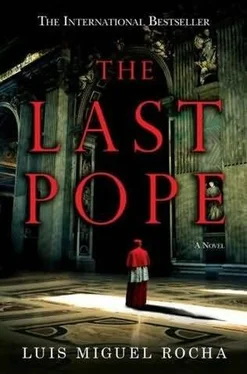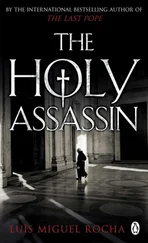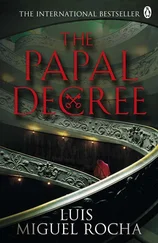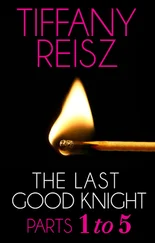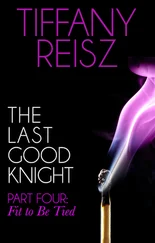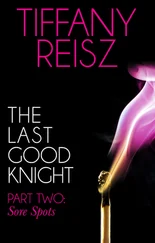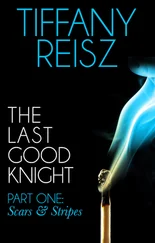After finishing his prayers, Cardinal Luciani got up and left his cell. Joseph Malula, the cardinal from Zaire, congratulated him warmly, but Luciano nodded in sadness, continuing on his way to the Sistine Chapel for the third vote.
“I feel I’m at the center of a great whirlwind,” he lamented. After the third scrutiny, Albino Luciani received sixty-eight votes, and Siri, fifteen. Albino was but eight votes away from being declared pontiff.
“No, please, no,” Luciani again prayed, under his breath. A few cardinals seated nearby heard their friend’s sigh. Prelate Willebrands tried to calm him with uplifting words.
“ Coraggio, Cardinal Luciani. The Lord weighs us down, but He also gives us the strength to bear up.”
Felici came up to the nervous cardinal and handed him an envelope.
“A message for the new pope,” he said.
To Albino Luciani this was a surprising commentary, particularly from someone who had always voted for Siri.
The handwritten message mentioned the words Via Crucis, The Way of the Cross, symbol and reminder of Christ’s Passion. All the cardinals felt the same trepidation and unrest in the presence of Michelangelo’s imposing frescoes. The prelates knew that they were part of a transcendental ritual in the history of the Church and, given the circumstances, in the history of the world.
Everything had been according to tradition. The Holy Spirit had come to the participants in the conclave and had stopped over the figure of one of them, or at least that was what the majority thought.
It was God’s will.
Luciani received ninety-nine votes, Cardinal Siri eleven, and Lorscheider one (Luciani had voted for him). Destiny had been fulfilled. The cardinals erupted in fervent applause. They had scarcely taken one day to elect their pope among 111 cardinals, and that success was attributed, of course, to divine inspiration. By five minutes past six, the whole thing was over, a little before dinnertime.
The doors to the Sistine Chapel opened, and the masters of ceremony came in, following the Cardinal Camerlengo, Jean-Marie Villot, secretary of state of the Vatican with the preceding pontiff and keeper of Saint Peter’s keys until the conclave ended. All the prelates, according to the secular tradition, surrounded Albino Luciani.
“Do you accept your canonic election to become the Holy Roman Pontiff?” the French cardinal asked.
The eyes of all the cardinals were fixed on the timid man. Even Michelangelo’s figures seemed to adopt a more severe expression, lacking joy manifesting an almost unbearable sense of heaviness. Cardinals Ribeiro and Willebrand offered looks of encouragement to the Venetian priest, and Villot repeated his question.
“May the Lord forgive you for what you have done to me,” Luciani finally responded. “I accept.”
Everything continued according to the protocol established centuries before. The grave, imposing ritual proceeded with overwhelming precision.
“By what name do you wish to be known?”
Luciani hesitated again, and after a few seconds, smiling for the first time, he spoke the name he had chosen for himself in the historical records.
“Ioannes Paulus the First.”
In the Vatican it was presumed that the name chosen by a new pontiff partly indicated the religious and political direction he wished his papacy to follow. The most experienced understood that Albino Luciani had started in an unusual way and that his papacy would be an exceptional one.
“Nothing will be the same,” they said. His papacy was to begin with an innovation. In almost two thousand years of history, no other pope had used a combined name. Luciani was the only one who dared to go against tradition and in this way render homage both to the man who named him bishop and to the one who designated him cardinal.
“Congratulations, Your Holiness,” Cardinal Karol Wojtyla proclaimed.
There was a great bustle in the Sistine Chapel. Everything had been ready for days, but always some detail would come up that demanded attention-a fringe to be fixed, or an untimely visit to take care of. The cardinals distributed the chores among themselves, moving to and fro, with the urgency of those who know they are taking part in a historical decision.
Luciani was taken to the vestry to conclude the required rituals, and to finish his prayers according to tradition. Other prelates burned the ballots of the last scrutiny, adding to the fire the chemical products needed to whiten the fumata. But after a few white puffs, the faithful thousands waiting in Saint Peter’s Square observed that the smoke was turning black again, perhaps because of accumulated dirt in the chimney. Or perhaps because there was no new pope.
The brothers Gammarelli, tailors to the Vatican, bickered while trying to find a white vestment appropriate for the occasion. For decades now, the most famous tailor shop in Rome made sure to have on hand three cassocks-small, medium, and large-before each conclave. On this occasion, however, they had added a fourth-extra large-just in case. There had been rumors about the possible election of a heavy monsignor. The one chosen, however, had very narrow shoulders, and his name didn’t even appear on the list of the most prominent, as culled by newspaper and television analysts. After trying several garments on Albino Luciani and circling him again and again, the tailors were more or less satisfied. Luciani finally appeared wearing white vestments to present himself to the world as the new Holy Father of the Catholic Church.
Cardinal Suenens approached Luciani to congratulate him.
“Holy Father, thanks for having accepted.”
Luciani smiled, “Perhaps it would have been better to refuse.”
Why didn’t he? his conscience wondered. He wanted to refuse but didn’t have the courage. In fact, his own true humility had been overwhelmed by the speed at which everything had evolved, and by the forceful will of the majority. But ultimately he accepted because he felt capable of executing the difficult task ahead of him. If he truly had not, he told himself, he would have declined.
The cardinals began intoning the Te Deum.
In the plaza, the groups of the faithful had begun to disperse. For them, it seemed that the cardinals hadn’t reached an agreement, or that the inspiration of the Holy Spirit had not yet come to them, since apparently there was no new pope. The fumata had been dark, no doubt about it, symbolizing the indecision of the conclave.
The Vatican radio commentators reported that the smoke was black and white, and so they couldn’t tell.
The commander of the Swiss Guard, who had to receive the new pontiff with a loyal salute in the name of all his men, did not even have the escort ready to accompany him through the corridors leading to the balcony on Saint Peter’s Square.
The brothers Gammarelli argued in the vestry, each blaming the other for their lack of readiness.
In the midst of this confusion, the enormous door to the balcony in Saint Peter’s Basilica opened, and the voice of Cardinal Felici thundered from the loudspeakers.
“Attenzione.”
The faithful, already on their way home or to their hotels, came running to the plaza. Then there was complete silence.
“Annuntio vobis gaudium magnum: Habemus Papam!”
Diego Lorenzi, Luciani’s secretary for the last couple of years, had accompanied him from Venice to Rome, and he was among the faithful thousands waiting in Saint Peter’s Square for the results of the scrutiny. He had seen that the smoke coming out of the chimney since six twenty-five was neither black nor white. For about an hour it had been kind of ashen, and nobody could decide whether that dirty smoke was the white fumata so eagerly awaited by all. Next to him, also waiting for the conclave’s resolution, were a couple with their two girls, arguing about the inconclusive smoke. The younger of the girls, overcome by the religious spirit dominating the plaza, asked him whether he’d said Mass in that immense church before them.
Читать дальше
